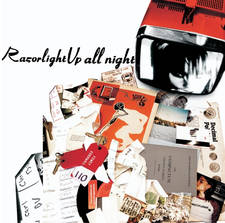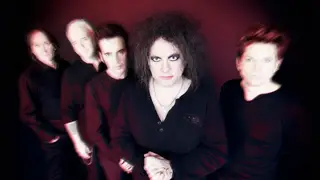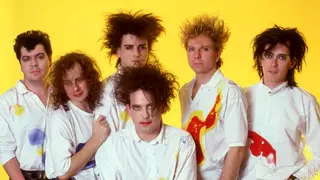The Cure: Boys Don’t Cry still encourages men to show their emotions
2 November 2024, 17:00

Robert Smith has claimed that the classic Cure single is as relevant as ever...
Listen to this article
Robert Smith revealed that he thinks The Cure’s classic hit Boys Don’t Cry is still relevant today - by encouraging men to show their emotions.
The Cure frontman performed the song at the band’s headline set at Glastonbury in 2019 - and the sight of LGBTQ+ flags flying in the crowd made him recall why he wrote the song in the first place.
He told Rolling Stone shorly after the appearance: “I was singing [Boys Don’t Cry] at Glastonbury and I realised that it has a very contemporary resonance with all the rainbow stripes and stuff flying in the crowd.”

The Cure - Boys Don't Cry
The song - which was released as a single in June 1979 and finally became a chart hit seven years later - is ironically told from the point of view of a boy whose relationship has ended badly, but can’t express his real feelings because of what society expects from males.
The lyrics demonstrate the conflict: “I would do 'most anything to get you back by my side / But I just keep on laughing, hiding the tears in my eyes.”
Smith explained: “When I was growing up, there was peer pressure on you to conform to be a certain way.
“And as an English boy at the time, you’re encouraged not to show your emotion to any degree. And I couldn’t help but show my emotions when I was younger.”

Smith went on: “I never found it awkward showing my emotions. I couldn’t really continue without showing my emotions; you’d have to be a pretty boring singer to do that.
“So I kind of made a big thing about it. I thought, ‘Well, it’s part of my nature to rail against being told not to do something’.”
“Pop was never a dirty word with the Cure,” Lol Tolhurst told Radio X in 2016. “But our songs came from our lives, like our diary. A lot of things that happened in my life and in Robert’s life were very upsetting. So that’s what we wrote about. And I think that’s what artists should do. They should be a reflection of the times and the places that they live in. For The Cure, we tried to paint the pictures of our lives, musically.”
In an unexpected turn of events, The Cure would change their sound from post punk pop to release some of the darkest music of the early 1980s - before having chart success again with hits like The Love Cats and In Between Days.

THE CURE - Boys Don't Cry
Smith explains the change in The Cure’s sound: “It was a natural evolution and we kept adding members, and the sound just got bigger and more interesting. But I never lost sight of the three-minute pop song, and I think that helped particularly in the mid-Eighties when we could have turned into quite a grand thing. Pop singles helped us get through what otherwise would have become very pompous.”
The musician considered the 1987 single Just Like Heaven to be The Cure’s perfect pop moment: “When I wrote it, I thought, ‘That’s it. I’ll never write something as good as this again’. I remember saying to the others in the studio, ‘We might as well pack up.’ Thankfully, we didn’t.”

The Cure - Just Like Heaven






